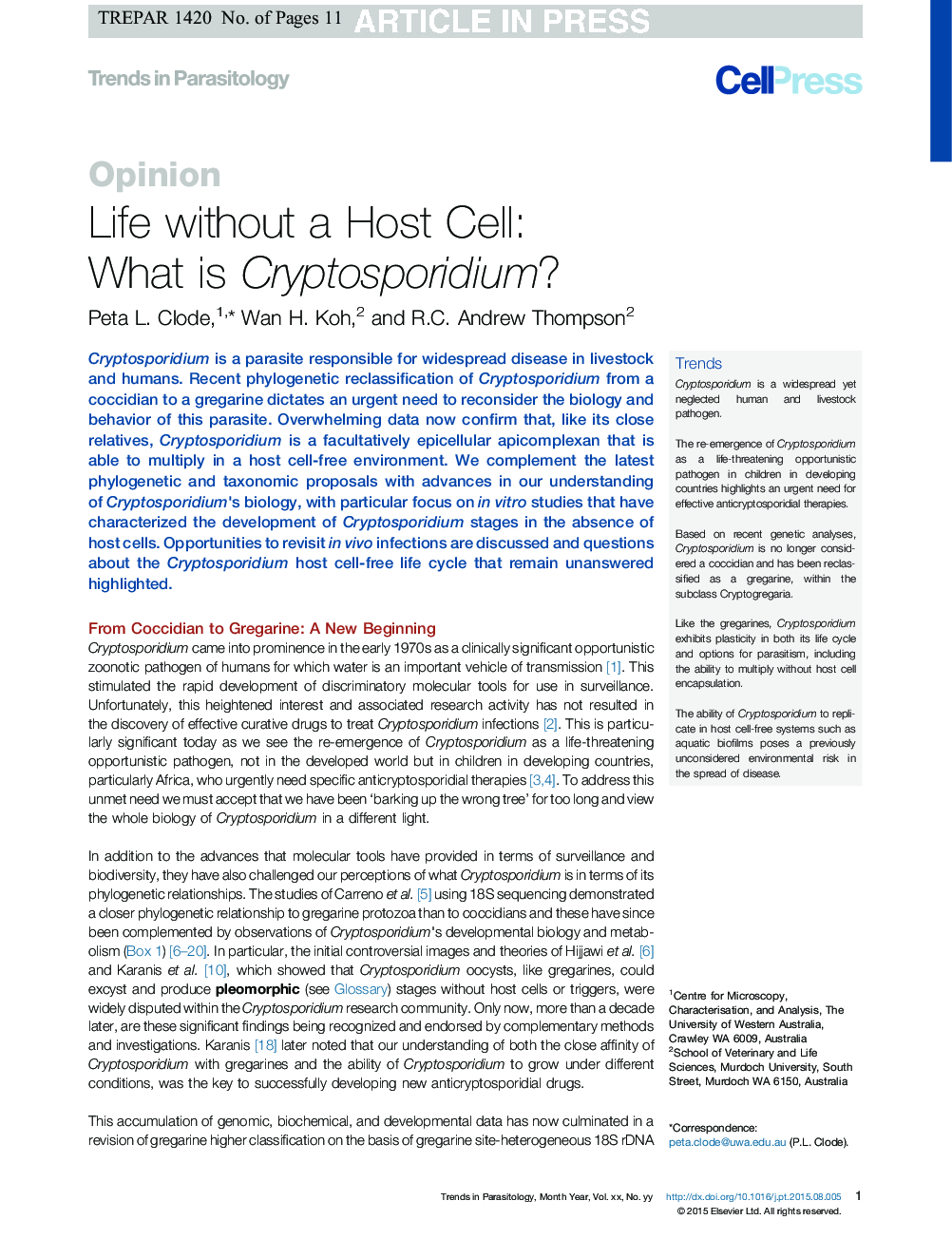| Article ID | Journal | Published Year | Pages | File Type |
|---|---|---|---|---|
| 6138062 | Trends in Parasitology | 2015 | 11 Pages |
Abstract
Cryptosporidium is a parasite responsible for widespread disease in livestock and humans. Recent phylogenetic reclassification of Cryptosporidium from a coccidian to a gregarine dictates an urgent need to reconsider the biology and behavior of this parasite. Overwhelming data now confirm that, like its close relatives, Cryptosporidium is a facultatively epicellular apicomplexan that is able to multiply in a host cell-free environment. We complement the latest phylogenetic and taxonomic proposals with advances in our understanding of Cryptosporidium's biology, with particular focus on in vitro studies that have characterized the development of Cryptosporidium stages in the absence of host cells. Opportunities to revisit in vivo infections are discussed and questions about the Cryptosporidium host cell-free life cycle that remain unanswered highlighted.
Related Topics
Life Sciences
Immunology and Microbiology
Parasitology
Authors
Peta L. Clode, Wan H. Koh, R.C. Andrew Thompson,
